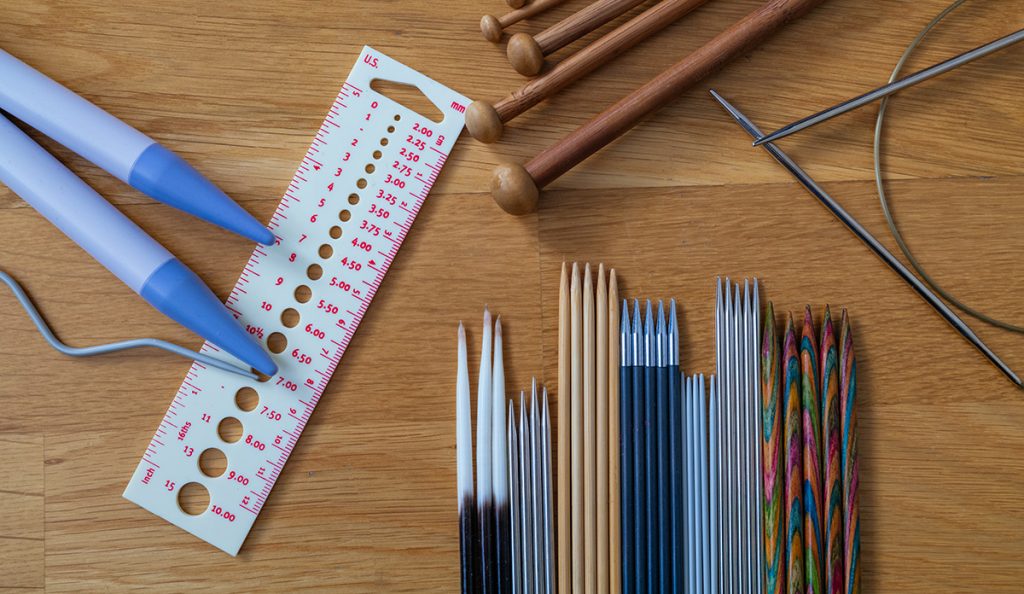
Associated Electrics, Incorporated, a global leader in radio-controlled cars, has been founded in 1964. The company was established in 1964 and has been at the forefront hobby-car racing since then. The company offers a variety of vehicles including touring cars and monster trucks as well as buggies and off-road trucks.
1964 was the foundation year for Associated Electrics.
Associated Electrics of California is a manufacturer of radio-controlled cars and trucks. Two aerophysics technicians founded it in 1964. Roger Curtis (left) and Lee Yurada (right) started an after-work venture to help with slot car sales. After a while, they decided to expand their hobby and began producing slot car parts and accessories. Soon, their hobby turned into a full-time job and Associated Electrics was formed.
The initial location of the company was in Paramount. The company's success led them to move to Costa Mesa. They had 75 employees by 1987. Cliff Lett became the R&D director of the company during this time. He had worked on the RC10 concept with Roger Husting. The company introduced RC10 at the 1985 IFMAR World Championships. They placed first through third. Soon, RC-cars became extremely popular and Associated Electrics doubled it's size.

Associated Electrics is a manufacturer of race-related radio control cars
1964 saw the creation of Associated Electrics. Its founders were two former aerospace technicians who wanted a career in slot car racing. They combined their expertise in aircraft manufacturing to create slot car parts. The idea worked, and they turned their hobby into a full-time business. Associated Electrics, a manufacturer of slot car parts, quickly became a market leader in chassis, accessories, parts, and other parts.
Santa Ana was where the company was established. In 1971, the company moved to the city and began manufacturing the RC100. It won the first IFMAR race at Thorp Raceway. Today, Associated produces RC vehicles that have won multiple races around the world.
Associated Electrics has been in the forefront of hobby-car racing since 1965
Associated Electrics was founded in 1965 with a few parts for slot cars. It has grown to be a major player in radio-control vehicles. Today, the company designs, manufactures and ships thousands of radio-control vehicles to hobby stores around the world. Associated produces everything from tiny buggies in 1:18 scale to large, nitro-thundering trucks in 1/8 scale.
Associated Electrics is headquartered at Lake Forest, California and is owned the Thunder Tiger Corporation of Taiwan. Its history is littered with innovations that have helped it stay ahead of the competition. It also introduced a new branding sheet with current Associated brand logos and bonus logos.

Associated Electrics sells buggies, monster trucks, off-road trucks, and touring cars.
Associated Electrics is an American company which designs radio-controlled cars and sells parts. They offer a wide range of vehicles, from buggies to touring cars to off road trucks. This company also has a large inventory of parts. They have customers all over the United States.
Monster trucks can pull, climb and crush terrain. They have big tires and are built low to the ground. Some models can be powered by nitro or electric. These trucks can be very powerful and are available in various scales. RTR 1/8-scale nitro-powered models are the most popular.
FAQ
What are educational hobbies, you ask?
A hobby that teaches you something is called an educational hobby. It could be anything, from playing sports to learning how an instrument is played.
You should have fun with it. You don’t have to do it constantly, but you should consider what other activities you could be engaging in instead.
You also want to ensure you're not spending too much on these activities because they can end up costing you more than they're worth.
What are observation hobbies?
Observation hobbies involve watching people do the things they love. These hobbies could include reading books, watching sports, or going on vacation. It could also involve observing others.
Observation hobbies are great because they help you learn how to think creatively. This knowledge can be used later to help you with projects that you are working on for others or yourself.
You will discover that learning is easier when you are interested.
For example, if you want to know more about football, you may watch a game or read a book about it. Exhibitions are a great way to learn about photography.
If you enjoy playing music, you could play along to songs online or buy a guitar.
You can cook your own meals, or you could go to a restaurant.
If you like gardening, you could grow vegetables or flowers.
If you like dancing, you could join a dance class or go out with friends.
You could also paint pictures if you are a fan of painting.
If you like writing, you could write stories or poems.
You can draw pictures if your passion is drawing.
If you have a passion for animals, you might be able to look after them or work in a zoo.
You could choose to study biology, maths, chemistry, or physics if you are interested in science.
If you like history, you could read books, watch films or listen to podcasts.
You could explore the world or travel to places you love if you are a lover of traveling.
What can I do to make money from my hobby or business?
Many hobbies can bring in extra income.
You might consider selling items that are related to your hobby if you are passionate about it.
For example, if you collect stamps, you may want to set up a website selling rare stamps.
This will allow you to earn additional income without having go through the hassles of buying and selling stamps.
Another option is to start a YouTube channel in which you discuss your hobby.
This allows you share your passion and generate revenue by creating premium content.
How do I get started with my new hobby?
To start a new hobby, you must first decide what type of activity you would like to do.
Once you have decided on your subject, passion is the key.
It is essential to understand the reasons you want to start a hobby. It will give you some direction and purpose.
After you have decided on the type of hobby you want to pursue, it's time to start planning.
Take a look at the equipment you will need.
You might need to consider whether you should attend classes or seminars.
Ensure that you have enough space for your hobby.
It might also be worth considering joining a group or club. These groups usually offer support and advice.
The last thing you should do is think about how much money it would cost to pursue your hobby.
Why do we need hobbies
Hobbies are an important part of our lives because they give us time to relax, unwind, think creatively, exercise, socialize and enjoy ourselves. They also provide us with opportunities for learning new skills and developing valuable life-long interests.
Hobbies help us to find meaning and purpose in our lives.
They are often a great way to spend free time when you don't have much else going on.
And they're fun!
If you don't have time for a hobby, then you probably don't have time for anything else either.
Look at all the options. Perhaps you should get a hobby started today if you don’t already have one.
What are your competitive hobbies?
Competitive sports include running, swimming, cycling, golfing, tennis, etc.
They're often enjoyed by people who are active and want to socialize.
You will probably find people around you who have the same hobby as you, if you are into physical activity.
This could mean joining a club, or group that meets regularly to do sports together.
Participating in group games, which involve playing alongside others, is another option.
These include cricket, football, netball, hockey, netball, soccer, rugby, cricket, rugby, batsball, hockey, volleyball, badminton squash, handball and table tennis.
There are many kinds of competition.
Some competitions may be held for pure recreational purposes.
Others are intended to test competitors' skill.
Other rewards are available to recognize exceptional performance.
The winners are awarded prizes in these cases.
Other competitions are meant to test competitors' strength and stamina.
These are endurance events.
For example, marathon races, triathlons, Ironman Triathlon, etc.
Before participating in these events, athletes often train hard.
They will adhere to a strict training program that prepares them mentally as well as physically.
They might also have to travel for preparation.
It's important to remember that not all athletes compete in every type of event.
Statistics
- In comparison, men in the “no humor” condition were refused 84.6% of the time and were only accepted 15.4% of the time. (time.com)
- Studies show that just six minutes of reading can reduce stress levels by 60 percent. (oberlo.com)
- A new survey by Pew Research Center of teens ages 13 to 17 finds that 36% of girls feel tense or nervous about their day every day; 23% of boys say the same. (pewresearch.org)
- I am 100% biologically a woman (discover.hubpages.com)
- Much of this decline reflects the fact that teens are less likely to work today than in the past; among employed teens, the amount of time spent working is not much different now than it was around 2005. (pewresearch.org)
External Links
How To
How to choose the right hobby
Ask yourself some questions to find out if your hobby is right.
-
Do I enjoy doing it?
-
Do I get pleasure from it?
-
It is something that I would love to continue doing, even after I'm older.
-
Am I good at it?
-
Can I improve?
-
Would I recommend this to anyone?
-
Will it bring you happiness?
-
Can it help me to relax
-
What will it do for me?
-
It will teach me skills I can use later on in my life.
-
It could allow me to make new friends.
-
Can it let me express my creativity?
-
It will it give me the chance to learn new things?
-
Can it give me assurance?
-
Will it provide me with a sense of achievement?
-
It will it bring you financial success?
-
Can it allow me to travel?
-
Is it possible to go on new adventures?
-
It will encourage me to exercise.
-
It will it motivate me to work harder?
-
Is it going to motivate me?
-
What activities will I be required to do?
-
Is it going to challenge me?
-
Will it be fun?
-
Can it keep you fit?
-
Will it save money?
-
Will it reduce stress levels?
-
Is it going to stop me from getting bored?
-
Will it free up my time?